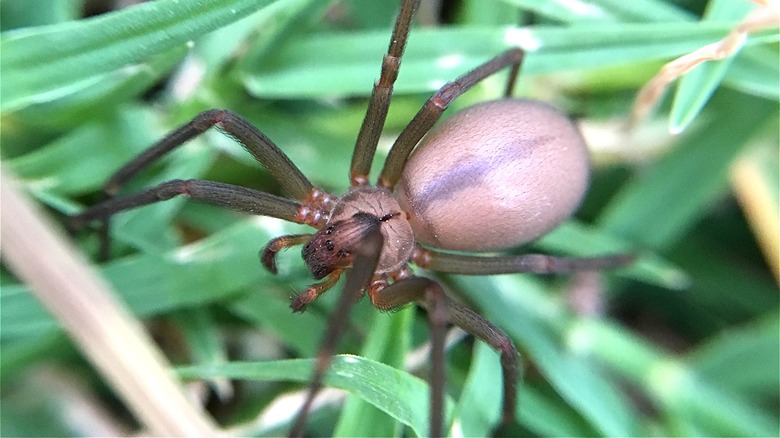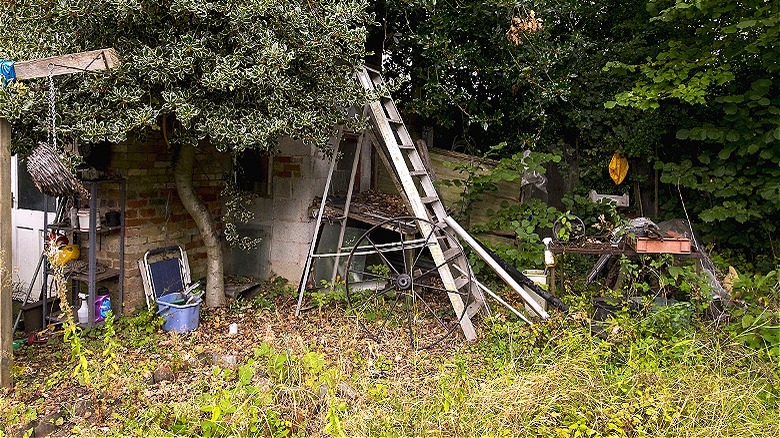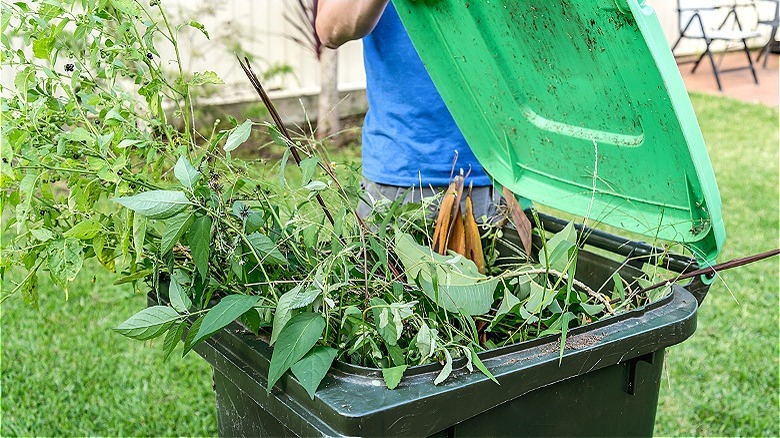Your Lawn May Be Attracting Brown Recluse Spiders. Here's How
Brown recluse spiders are venomous arachnids that like to hide in dark, undisturbed places. These spiders — which can be brown, yellow, or tan — have a mark shaped like a violin and six eyes rather than eight. By nature, brown recluse spiders take shelter in dark areas that can also provide them with food (i.e., small dead insects), so overgrown shrubs and grass are a great habitat for them. If you have such vegetation growing in your yard, you may be, unintentionally, attracting brown recluse spiders to your outdoor space.
Though their bites are rarely fatal, the venom of the brown recluse spider may cause fever, nausea, itching, and chills, per Johns Hopkins Medicine. Further, as the hospital notes, if the bite turns into an ulcer or sore (with a blue, purple, or black center), you should seek medical attention. More severe symptoms include seizures, jaundice, and kidney failure, but these reactions are rare.
While the spider is shy (a true recluse), and prefers to be left alone, it will bite you if it feels threatened. If you're bitten by a brown recluse spider, it's important to contact poison control or seek medical care quickly. Dogs and cats are also affected by brown recluse venom and will need immediate veterinary care if bitten. To help keep brown recluse spiders out of your yard, you may need to adjust your lawn care to remove their hiding spots.
How lawns can attract brown recluse spiders
If you've noticed brown recluse spiders near or inside your house, take a look a your yard. It's possible your yard's vegetation or garden area could be attracting the solitary spiders to your home. Brown recluse spiders love dark areas without much moisture, so any excessively overgrown plants or untrimmed trees could bring these potentially dangerous arachnids to your property. Wood piles and other backyard clutter are also attractive to the brown recluse.
Regularly mowing your grass, neatly trimming your bushes and trees, and keeping your garden tidy will help prevent these spiders from living directly outside your house. If you live beside the woods, cutting back the thick plants around the perimeter of your yard or home is another good way to ward off brown recluse spiders. While you might not see these spiders at first because they mostly come out at night, an absence of mosquitoes and other flying insects could hint that these spiders are present.
What to do if you have brown recluse spiders
Because brown recluse spiders are venomous and can be startled if you discover their hiding spots, it's prudent to call a professional pest control agency to deal with the problem. If these arachnids find their way inside your home, they'll likely hide in your attic, basement, small cracks in your walls, or even inside a dark cupboard. Attempting to remove the spiders on your own is not a great idea.
After you've gotten rid of the spiders, you'll, of course, want to prevent them from coming back. Because overgrown lawns can attract these spiders, you'll want to maintain a healthy, neat yard going forward. Garages and sheds, meanwhile, also provide dark spaces for brown recluse spiders to hide in, so you'll want to put up barriers where you can. A simple tactic is to close your garage door as soon as you're done parking or pulling out.
Another potential hiding spot for the brown recluse? Closets. Keep your closets and dark, dry storage spaces tidy to cut down on the places in your home where these spiders would love to make their own.



